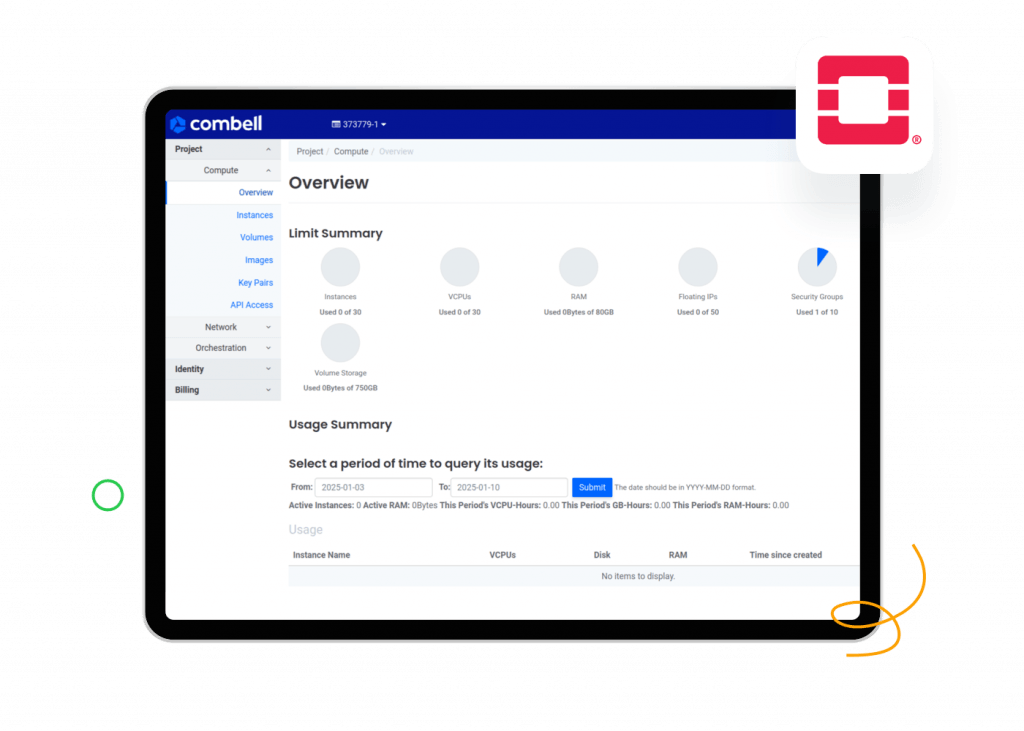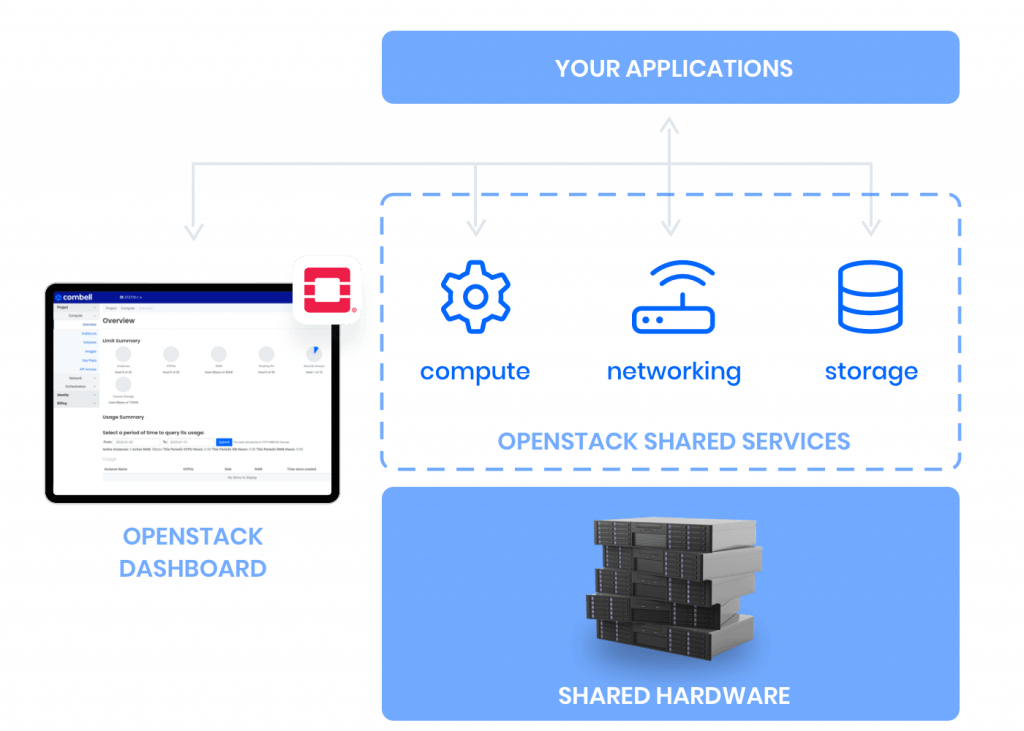What is OpenStack and why is it important?

The world of IT and cloud technology is evolving rapidly. OpenStack is a name that comes up more and more often when discussing cloud infrastructure. But what exactly is OpenStack, why is it so popular, and how can your business benefit from it? In this blog, we’ll dive deeper into the fascinating world of OpenStack.
What is OpenStack?
OpenStack is an open-source cloud platform that helps businesses manage their IT infrastructure efficiently and flexibly. It provides a framework to build public, private, or hybrid clouds. But where did OpenStack come from?
The story began in 2010 when hosting provider Rackspace and NASA joined forces. Together, they aimed to create an open-source alternative to expensive, proprietary systems. Since then, OpenStack has become a global phenomenon, supported by thousands of developers and businesses.
Thanks to its open structure, OpenStack has quickly adapted to the ever-changing needs of the IT world.
Who runs OpenStack?
OpenStack is managed by the Open Infrastructure Foundation, a global nonprofit organization that promotes innovation. The OpenStack community also plays a vital role.
Thousands of developers and companies contribute to the platform and share their expertise. This collaboration has resulted in a platform that is both powerful and flexible.

Where is OpenStack used?
OpenStack is primarily used in data centers and cloud environments. Major companies like Walmart and BMW, as well as telecom providers and research institutions, rely on OpenStack to keep their infrastructure scalable, flexible, and cost-efficient.
It’s ideal for businesses that want to manage their own cloud and avoid dependence on large cloud providers. OpenStack is also a popular choice in industries where data security and control are of critical importance.
Why use OpenStack?
The popularity of OpenStack didn’t happen by chance. Here are some reasons why businesses choose OpenStack:
OpenStack advantages:
OpenStack disadvantages:
While the benefits are compelling, it is important to also face the challenges. OpenStack is not always the perfect choice, but it does offer unique capabilities that are attractive to many organisations.
Consider sectors such as healthcare, where data compliance is crucial, or at financial institutions that have high security requirements.

Why do we need OpenStack?
With OpenStack, you can remain independent of large cloud providers such as AWS, Google Cloud or Azure. This is especially important for companies that want to maintain control over their data and infrastructure.
For example, in a hybrid cloud setup, an organisation can store sensitive data locally while less critical applications are outsourced to a public cloud.
In addition, OpenStack helps save costs, especially for organisations with a long-term cloud strategy.
OpenStack offers customization
Another big advantage is the possibility of customisation. Companies can customise OpenStack to support specific operational needs.
Imagine a large webshop that needs to handle peak loads during holidays; OpenStack allows on-demand capacity to be increased and then scaled back. This gives organisations the flexibility they need to stay competitive.
For businesses that need a unique cloud strategy, OpenStack is a logical choice. The
Open Source model of the platform means businesses have no vendor lock-in, increasing their technology independence.
OpenStack has up to a wide range of integration capabilities with other technologies, enhancing interoperability.

How does OpenStack work?
OpenStack functions as an abstraction layer over physical hardware (such as servers). It uses virtualization to manage servers, storage, and networks.
Thanks to APIs (Application Programming Interfaces), users can easily request and manage resources without interacting directly with the hardware. This enables organizations to manage and optimize their infrastructure efficiently.
Collaboration with other technologies
OpenStack is designed to work seamlessly with popular technologies like Kubernetes, Docker, and Ceph.
This integration allows businesses to incorporate OpenStack into existing workflows and benefit from the best of both worlds. This interoperability makes OpenStack a versatile choice for modern IT environments.
The purpose of OpenStack projects
OpenStack consists of a collection of projects, each with a specific goal. Here are some of the key ones:
By combining these projects, you can create a tailored cloud environment that fits your exact needs. This modular approach is one of the reasons OpenStack is so popular.
OpenStack in everyday life
OpenStack is used globally across many sectors. Here are some examples:
Want to know how your company can benefit from an OpenStack solution? Check our OpenStack Cloud Hosting page and discover how Combell can help you with scalable and flexible infrastructure.
What does OpenStack consist of?
We dive further under the bonnet of OpenStack.
OpenStack consists of a collection of core components that work together to manage a cloud environment. Some of the key components are:
- Nova: manages virtual machines.
- Swift: object storage for storing unstructured data.
- Cinder: block storage, similar to hard disks.
- Neutron: controls networking and connectivity.
- Horizon: a user-friendly web interface.
- Keystone: provides authentication and authorisation.
Each component is designed to fulfil a specific function within a cloud environment. Together, they form a powerful ecosystem that is fully customisable.
What is an OpenStack application?
An OpenStack application is a software application running on an OpenStack cloud. Think web applications, databases or big data analytics tools. Thanks to OpenStack's flexibility, you can support almost any type of application. This makes it ideal for businesses that need to manage a wide range of applications within a single environment.
Why consider OpenStack?
OpenStack is a powerful platform that helps companies take control of their cloud infrastructure. Although it has challenges, such as the complexity of deployment, the benefits are huge: flexibility, cost efficiency and a wide ecosystem.
Because it gives you the freedom to set up your infrastructure exactly the way you want. Whether you are a large multinational or a research institute, OpenStack offers possibilities you should not miss.
Would you like to know more about how Combell can help you with an OpenStack solution?

